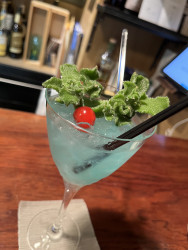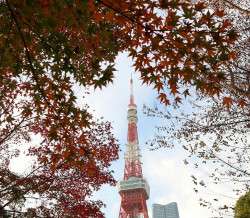
October 20, 2011
Dogtown and J-boys
Japanese social dynamics in a sport of individual self-expression
By Metropolis
Originally published on metropolis.co.jp on October 2011

Skateboarding always seemed to me to be the ultimate brash, individualistic endeavor. So much so, in fact, that I hesitate to call it a sport. It is pure self-expression with no rules, no teams, and limited competition. I assumed the same applied in Japan until one day, with my friend, Masa. Having just hung up his keitai, he told me, “Oh sorry, that was my sempai.”
“You mean your senior in junior high?” I queried.
“No, my skate sempai,” he replied, “the one who taught me to skate when I was growing up.”
Go to the local skate park in Chiba, the first thing that strikes you like a sledgehammer is Metallica blaring out of a guitar amp hooked up to an iPod, so loud you almost can’t hear the skateboards slapping the decks. People are flying in the air and wiping out, cursing, and so on. One skater has a fit because he consistently fails to land an ollie to mid-air grab way above the ramp coping (don’t be so hard on yourself, it’s only the hardest trick in the book). He flings his skateboard to the pavement in frustration and lets out a roar. A second later he is all smiles as one of his peers crosses his path—probably a sempai. In all this chaos, no one collides, cuts someone off, or starts an argument. Everything is promptly resolved with nods of “sumimasen.” Everyone is keenly aware of others, and the Japanese custom of assuming you yourself are at fault prevails, even here in the world of extreme sports.
Almost every weekend, skaters spontaneously get together to perform sudden modifications to ramps with additions of rails or pieces of plywood. In one such ceremony, a wooden box is dragged to the middle of the runway and a narrow triangular box leaned against it, creating a primitive structure whose transition to the table top is brutally sharp—which is the whole point. As usual, the skaters gradually get drawn into the challenge, accompanied by mounting cheers and jeers, continuing until all possible variations on the new obstacle are exhausted.
These impromptu creations materialize under the tacit direction of Kenta sempai, a lackluster university student turned local skate guru. Interestingly, those not in the “in-group” (the less-skilled, younger, etc.) make a point of getting Kenta’s okay before they hit the impromptu contraption. The unwritten rules are well understood, it seems.
These social dynamics, however, extend beyond interpersonal relationships. As in the surfing world, skaters develop a relationship with a certain store, usually where they bought their first board, and they tend to remain loyal. If you notice your reception in a given skate/surf store growing gradually colder, it is because you haven’t set up or maintained the relationship properly, usually with a token purchase (“just looking” is not valid), or you haven’t done your greetings before hitting the ramps.
There is of course a dark side to all this. Everyone has heard the recurring stories of bullying that take place in broader society. In Chiba there was the case of a middle-school student who was taken into the club activities locker room by her seniors, made to strip to her underwear and had dirty water from the mop pail slopped over her. Apparently she wasn’t greeting her peers appropriately, in a loud voice and with bow, as is the custom.
American writer Robert Whiting—somewhat an expert on baseball in Japan—talks about how this groupism suffocates Japanese athletes, inhibiting their full development. Ironically, while that might have some truth in baseball, it seems to contradict the skateboarding world in Japan, where skaters quickly develop through mentoring and mutual encouragement.
All merits considered however, the sempai-kohai factor in skateboarding is a double-edged sword, in that it also discourages beginners. The ones who quit soon after starting out are usually the ones without skate sempais. In contrast to North America, showing up at the park unaccompanied is in itself a big barrier. In the surfing world, part of the reason there are few arguments in the water is that the hierarchy is very well understood and not questioned. A surfer dissed by someone who considers him an unwanted kohai or simply an outsider will rarely counter, due to intense self- and group consciousness.
As much as I respect it, I personally could never get used to such dense social dynamics, though it might delay my “progress as a skater.” It rubs too squarely against the rebellious, free-spirited nature of a sport essentially created by disaffected (read: delinquent) suburbanites (Jay Adams and Dog Town) in 1970s California.
Skateboarding is about forgetting everything, people included.
Have something to say about this story? Share your comments below.







